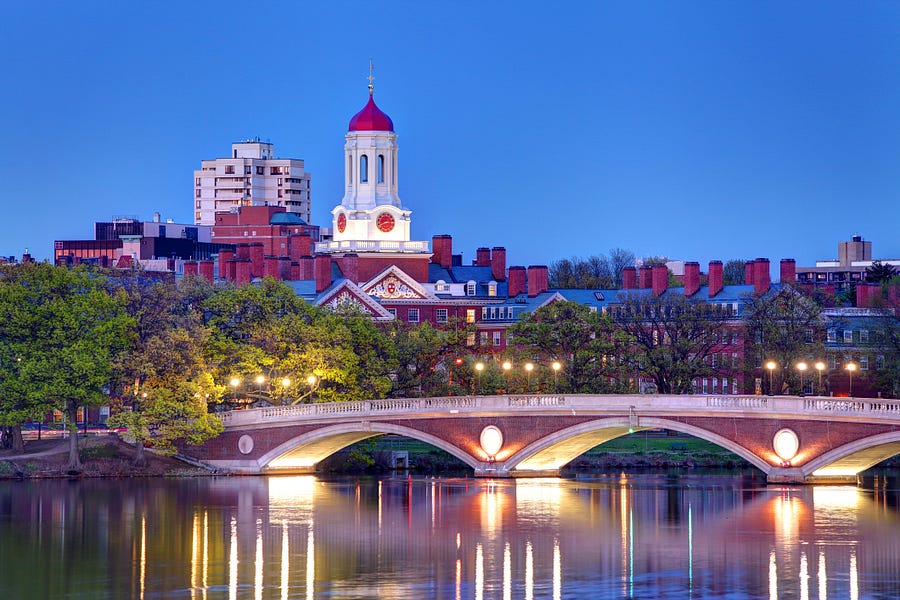When the Supreme Court upheld the use of racial preferences in college admissions in 2003, Justice Sandra Day O’Connor, who wrote the majority opinion, added a trenchant prediction: “We expect that 25 years from now, the use of racial preferences will no longer be necessary to further the interest approved today.”
Is it possible the end of affirmative action could arrive even sooner? Now that the Supreme Court has agreed to hear two cases challenging racial preferences in college admissions, it could be. Those of us who have been fighting to end this form of government-sanctioned discrimination should be encouraged by the court’s action.
On Monday, the Supreme Court agreed to hear Students for Fair Admissions v. Harvard College and Students for Fair Admissions v. University of North Carolina. The plaintiff argues that racial preferences in college admissions should be just as illegal as racial preferences elsewhere. Such preferences cannot be squared with the principle of equality before the law—embodied in both the Equal Protection Clause of the 14th Amendment and Title VI of the Civil Rights Act of 1964.
The Harvard case is particularly instructive for understanding why the court should end the use of racial preferences in college admissions. One of the most prestigious and selective universities in the nation, Harvard has long argued that racial preferences are necessary to create a diverse student body, and that such diversity is essential to creating a welcoming and inclusive climate on campus for students from various backgrounds.
Yet while these benefits are uncertain, the costs are very real.
For one, universities admit a set number of students each year. Every time someone gets in because of racial preferences, another applicant is left out for the same reason. At Harvard, the brunt of that discrimination lands on Asian American students—and it results in pernicious racial stereotyping. Asian Americans, who Harvard considers “overrepresented,” would be admitted in higher numbers if the university-based admissions on academic and extracurricular scores.
Harvard suppresses the number of Asian American students by assigning Asian American applicants a lower score on their “personal ratings”—a subjective standard that purportedly measures qualities like “likability,” “courage,” and “kindness.” Thus, admissions officers tarnish many applicants with the stigma of being unlikable, cowardly, and unkind. Yet alumni interviewers—who meet the same applicants—routinely disagree with those assessments.
The distribution of racial preferences is bad enough, but the way in which Harvard achieves its diversity goals in admissions makes it all the worse. From a 2018 New York Times piece:
Whites get higher personal ratings than Asian-Americans, with 21.3 percent of white applicants getting a 1 or 2 compared to 17.6 percent of Asian-Americans, according to the plaintiffs’ analysis.
Alumni interviewers give Asian-Americans personal ratings comparable to those of whites. But the admissions office gives them the worst scores of any racial group, often without even meeting them, according to Professor Arcidiacono.
The stereotypes caused by racial preferences do not end there. College admissions guidebooks, with Harvard’s admissions policy in mind, advise Asian American applicants to refrain from saying they plan to pursue careers in medicine or science because those are aspirations shared by many other Asian applicants. That is unjust. Race should never get in the way between an individual and her dreams. The onus is on universities to treat individuals based on their individual abilities, aspirations, and achievements, not on the basis of their membership in a racial group.
Racial preferences are not limited to college admissions. In recent years, my colleagues and I at Pacific Legal Foundation have fought against racial discrimination in K-12 admissions in New York City; Hartford, Connecticut; Fairfax County, Virginia; and elsewhere. Each of the admission policies that we challenged in these places are different, but they share a common, unjust goal of limiting opportunities to students in an effort to achieve the government’s desired racial balance in schools. In Hartford, it was an explicit quota that kept black and Hispanic students on waiting lists to magnet schools with empty seats. In New York and Virginia, it is facially neutral plans that use proxies to decrease the number of Asian American students admitted into competitive schools based on academic achievement.
Racial discrimination has no place anywhere. The Harvard and North Carolina cases represent a welcome pushback against this state-sanctioned discrimination in education. The Supreme Court should use this opportunity to put an end to racial preferences in college admissions at long last.
Wencong Fa is a senior attorney at Pacific Legal Foundation, which filed a friend-of-the-court brief in support of Students for Fair Admissions at the Supreme Court.






Please note that we at The Dispatch hold ourselves, our work, and our commenters to a higher standard than other places on the internet. We welcome comments that foster genuine debate or discussion—including comments critical of us or our work—but responses that include ad hominem attacks on fellow Dispatch members or are intended to stoke fear and anger may be moderated.
You are currently using a limited time guest pass and do not have access to commenting. Consider subscribing to join the conversation.
With your membership, you only have the ability to comment on The Morning Dispatch articles. Consider upgrading to join the conversation everywhere.